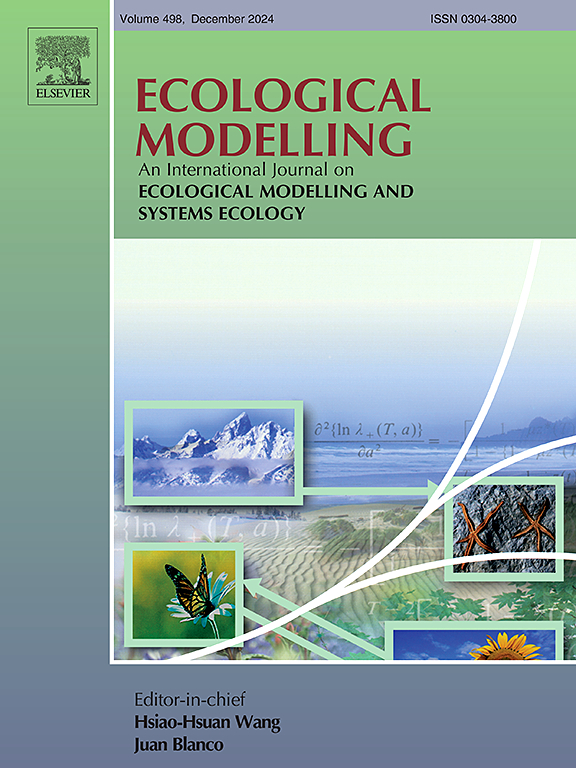碳市场中的现代殖民主义?来自能源会计的见解
IF 3.2
3区 环境科学与生态学
Q2 ECOLOGY
引用次数: 0
摘要
气候变化要求采取缓解行动,正如《京都议定书》和最近的《巴黎协定》所承认的那样,国际碳信用额度市场已成为一项关键战略。然而,发达国家和发展中国家之间的碳信用交换越来越多地反映了一种现代殖民主义模式,因为通常基于支付意愿的市场价格未能捕捉到信用产生国提供的生态系统服务的真正价值。为了解决这种不平衡,从捐助者的角度评估“价值”的科学工具是必不可少的,其中能量会计及其能量交换比率(EER)提供了一种很有前途的方法。本研究应用EER对2004年至2019年巴西的碳信用交易进行了评估。结果表明,巴西出口的能源是其获得的货币回报的25至43倍,表明存在严重的生态经济失衡。每吨二氧化碳当量的生物物理值。从能源角度来看,将比市场价格高出40倍,导致巴西在分析期间估计累计损失约5.23亿美元。虽然解决不平等生态交换的结构性根源超出了本研究的范围,但我们的分析通过关注这种不平等的一个可测量维度来做出贡献。为了解决巴西碳信用交易中发现的差异,建议采取两项主要行动:(i)通过外交接触、积极参与多边论坛和建立基于生物物理指标的最低定价来调整碳信用价格;(二)与能源单位货币比率(emr)较高的国家建立贸易伙伴关系,从而提高能源购买力。本研究强调经济效益是重新谈判公平贸易条件、指导生态系统服务评估和促进环境正义的宝贵工具。未来的工作应探讨将其纳入监管框架,包括巴西即将推出的排放交易体系,以促进更公平的碳市场动态。本文章由计算机程序翻译,如有差异,请以英文原文为准。
Modern colonialism in carbon markets? Insights from emergy accounting
Climate change demands mitigation actions, and the international carbon credit market has emerged as a key strategy, as recognized by the Kyoto Protocol and, more recently, the Paris Agreement. However, carbon credit exchanges between developed and developing countries have increasingly reflected a pattern of Modern Colonialism, as market prices typically based on willingness-to-pay fail to capture the true value of ecosystem services provided by credit-generating countries. To address this imbalance, scientific tools that assess ‘value’ from the donor's perspective are essential, in which Emergy Accounting and its Emergy Exchange Ratio (EER) offers a promising approach. This study applies the EER to assess Brazil's carbon credit transactions from 2004 to 2019. Results show that Brazil exported between 25 and 43 times more emergy than it received in monetary return, indicating a significant ecological-economic imbalance. A biophysical value per ton of CO₂-eq. under the emergy perspective would be up to 40 times higher than market prices, resulting in an estimated cumulative loss of approximately USD 523 million for Brazil over the period analyzed. Although resolving the structural roots of unequal ecological exchange is beyond the scope of this study, our analysis contributes by focusing on one measurable dimension of that inequality. To tackle the disparities identified in Brazil’s carbon credit trade, two main actions are proposed: (i) adjusting the price of carbon credits through diplomatic engagement, active participation in multilateral forums, and the establishment of minimum pricing based on biophysical metrics; and (ii) forming trade partnerships with countries that have higher Emergy per Money Ratios (EMRs), thereby enhancing emergy-based purchasing power. This study highlights the EER as a valuable tool for renegotiating equitable trade terms, guiding the valuation of ecosystem services, and promoting environmental justice. Future work should explore its integration into regulatory frameworks, including Brazil’s upcoming Emissions Trading System, to foster more equitable carbon market dynamics.
求助全文
通过发布文献求助,成功后即可免费获取论文全文。
去求助
来源期刊

Ecological Modelling
环境科学-生态学
CiteScore
5.60
自引率
6.50%
发文量
259
审稿时长
69 days
期刊介绍:
The journal is concerned with the use of mathematical models and systems analysis for the description of ecological processes and for the sustainable management of resources. Human activity and well-being are dependent on and integrated with the functioning of ecosystems and the services they provide. We aim to understand these basic ecosystem functions using mathematical and conceptual modelling, systems analysis, thermodynamics, computer simulations, and ecological theory. This leads to a preference for process-based models embedded in theory with explicit causative agents as opposed to strictly statistical or correlative descriptions. These modelling methods can be applied to a wide spectrum of issues ranging from basic ecology to human ecology to socio-ecological systems. The journal welcomes research articles, short communications, review articles, letters to the editor, book reviews, and other communications. The journal also supports the activities of the [International Society of Ecological Modelling (ISEM)](http://www.isemna.org/).
 求助内容:
求助内容: 应助结果提醒方式:
应助结果提醒方式:


